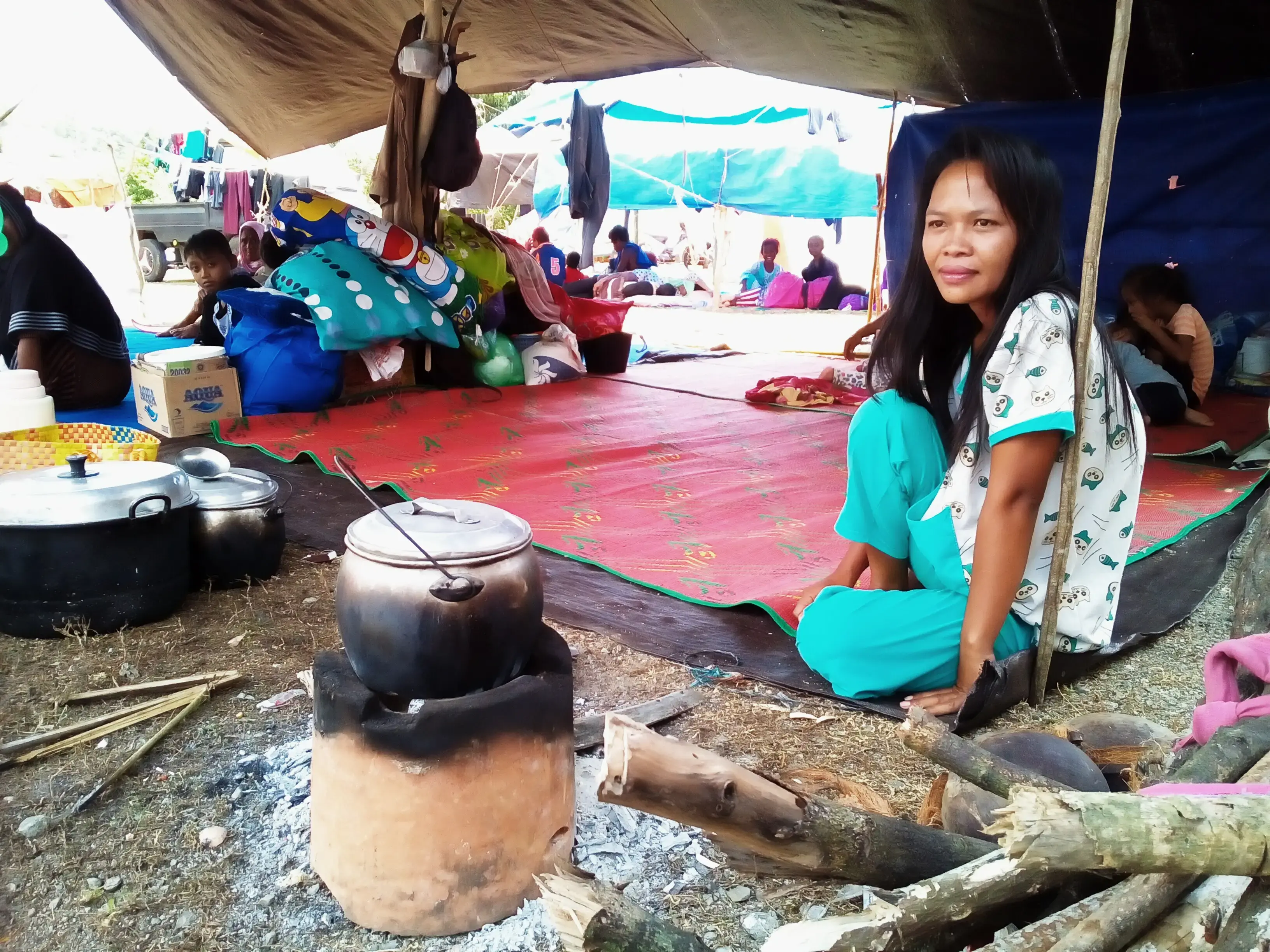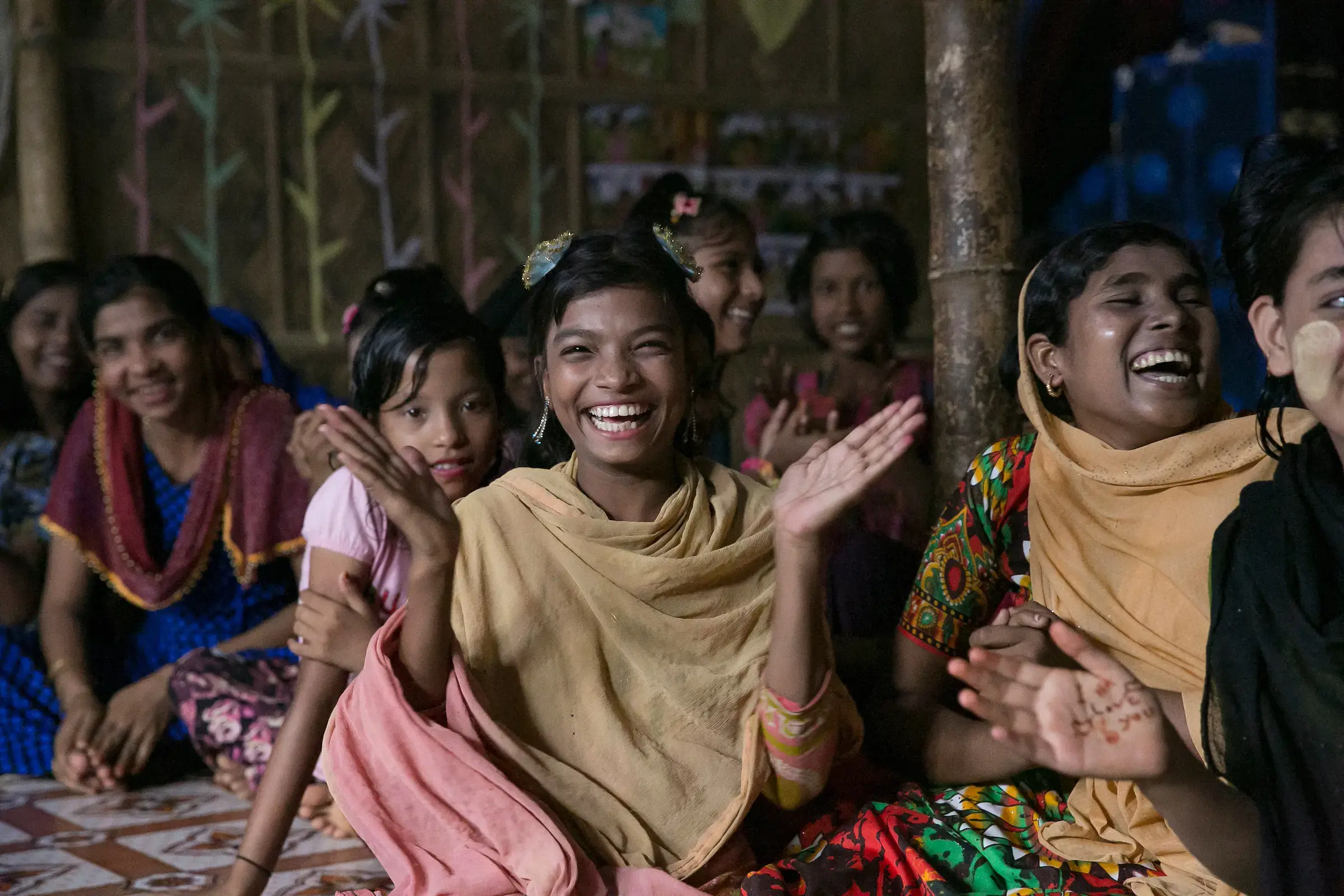Yoriko Yasukawa is Regional Director of the United Nations Population Fund (UNFPA) Asia-Pacific Regional Office

The 70th anniversary of the United Nations is a good occasion to reflect on how much progress we have made and how much farther we need to go in advancing the cause of peace, human rights and development for which our organization was founded.
On the one hand it is clear that the peoples and nations of the world are still far from truly taking to heart the lessons of the two World Wars that led to the founding of the United Nations and applying them consistently.
Just to mention one number, at the end of 2014 an estimated 60 million people were forcibly displaced around the world – a record number at the time – because of armed conflict or other kinds of generalized violence, and violations of human rights. In 2015, the numbers have swelled even more dramatically. Globally, one in every 122 of our fellow human beings is now either a refugee, internally displaced, or seeking asylum. If this were the population of a country, it would be the world's 24th biggest.
As UN Secretary-General Ban Ki-moon said last year at a commemoration of the 100th anniversary of the beginning of the First World War, ‘Too many continue to fuel conflict…heedless of the human consequences. Too many continue to embrace the military option, despite the lessons of history.’
On the other hand, 193 countries continue to participate as member states of the United Nations, and continue to try, often against great odds, to achieve the ideals put forth in our Charter:
to save succeeding generations from the scourge of war, which twice in our lifetime has brought untold sorrow to mankind, and
to reaffirm faith in fundamental human rights, in the dignity and worth of the human person, in the equal rights of men and women and of nations large and small, and
to establish conditions under which justice and respect for the obligations arising from treaties and other sources of international law can be maintained, and
to promote social progress and better standards of life in larger freedom.
Many of us who work within the United Nations, whether as staff members or as delegates of member states, continue to be inspired by these words. Even those who may not be particularly idealistic continue to struggle on within this global forum because they know that however dysfunctional the United Nations may seem, however frustrating its mechanisms may sometimes be, a world without it would probably be a lot worse off.
It took the massive loss of life and immense human suffering of the First World War to truly open the eyes of humanity to the need for a global forum to resolve disputes through open and peaceful dialogue based on a set of shared rules. The first attempt in the form of the League of Nations did not work out, and the world entered into another catastrophic war that claimed the lives of millions upon millions more. Yet we decided to try again -- because there was no other alternative. In the face of all odds, and perhaps in spite of despair, we chose to deposit our hope and faith in the United Nations.
And though we are far from eliminating war and terrible injustice and deprivation from our shared planet, we have made some important progress towards realizing the ideals of our shared humanity.
With the myriad international conventions and declarations coming out of the United Nations, and the countless goals and objectives that the member states have approved over the past seven decades, it is sometimes hard to maintain a sense of their significance. But they have had an impact -- first in building a shared vision of our future based on respect for human rights, for diversity, for our shared planet, then in turning that vision into reality -- slowly, gradually, sometimes falling backwards. But indeed, on many fronts, we have managed to change things for the better.
Over the 70 years of its existence, the United Nations has offered a safe space for countries to dialogue and negotiate toward collectively building a shared commitment – to the universality of human rights; to the equality between men and women; to the right of all children to be loved and to be supported toward fully developing their capacities; to the collective right of indigenous peoples around the world to their own identity and culture; to concrete goals to be achieved toward eliminating poverty and ensuring a decent life for all people, while at the same time seeking greater harmony with nature.
The agreements reached have not been satisfactory for everyone, but it is important that they were indeed agreements, not impositions. And while progress in achieving these objectives has been uneven and much slower than it should be, there has been progress.
The drive to achieve the Millennium Development Goals, for example, has led to the reduction of poverty as never before, from an estimated 1.9 billion people living in extreme poverty in 1990 to 1.2 billion in 2010. This has succeeded in halving the number of child deaths. The number of out-of-school children of primary school age worldwide has dropped from 100 million in 2000 to an estimated 58 million in 2015. And globally, the deaths of women from pregnancy and childbirth related causes have been reduced by 45% between 1990 and 2013.
Looking to the future, the world has now adopted a set of Sustainable Development Goals that it seeks to achieve by the year 2030. The 2030 Agenda expands on the Millennium Development Goals and sets forth a vision of development that brings together the economic, social and environmental spheres of life, and offers a life of dignity for all people, leaving no one behind. The process of defining this agenda was led by the member states of the United Nations and involved the participation of millions of people around the world – it has been an unprecedented effort by the United Nations to open up and democratize this dialogue on the world we want to build.
There have been a lot of heartening achievements in peacebuilding and preventive diplomacy as well, even if they have not been in the news as much as the violent conflicts. A recent report of the United Nations Secretary-General on this issue points out that over the past decades, member states have taken a greater interest in the prevention and mitigation of conflicts, and have taken important steps toward promoting a more proactive role for the United Nations and strengthening the capacity of the Organization toward this end.
To mention a couple of encouraging statistics: the number of low intensity conflicts that started in the period 2000 to 2009 were roughly half the number seen in the 1990s; during the same period the number of high intensity conflicts also dropped, from 21 to 16. It is important to look beyond the conflicts and violence that we see in the world today to try to turn these numbers into a genuine trend.
When we see the terrible, violent conflicts still raging in the world, the heartbreaking tragedy of the refugees and migrants drowning in the Mediterranean, the Bay of Bengal and the South China Seas, intolerance and sectarianism blinding people to the humanity of others, the widening gap of inequality dividing humankind, and the difficulty of coming to a binding global agreement to halt climate change, it is admittedly hard not to despair.
Still, faced with all these immense obstacles that seem to call out to us to just give up, I believe that the message the United Nations sends out to the world all the more today is: No, let us not. Let us not throw in the towel. Let us consciously choose hope over despair. Let us choose to believe that we were put here on Earth to do some good, and to care for others despite all our differences. Let us continue to imagine a better future – for us, for our children, for their children and the generations to follow.
When I worked in Central America in the 1980s, it was hard to imagine that the civil wars in that region would end. But they did end, thanks to people capable of imagining a future of peace and persevering against all odds to make that dream come true.
If this seems hard, let us think of our children. They don’t have to be our own sons and daughters. Think of any child that you love. Because we are simply not allowed to look into the eyes of those children and say to them, ‘We are giving up.’
So let us try, individually and collectively, to imagine a better future -- and let us strive to make it come true. And let us make the United Nations work for that common purpose.
At the United Nations Population Fund, UNFPA, we pledge to do our part – for the United Nations and our world.




